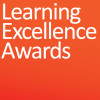Sector categories
The Sector categories are open to any company or training provider, or marketplace, comparison and course-finder sites
S01. Construction and Associated Trades, Agriculture and Horticulture
S02. Digital
(including IT, Technology, Telecommunications, Media and Multimedia)
S03. Education
(all levels)
S04. Environment and Sustainability
S05. Financial and Professional Services
(including lawyers, accountants, architects, banking, etc)
S06. Health, Medical, Pharmaceutical and Social Care
(including care homes and care at home services)
S07. Manufacturing
(including aerospace, automotive and all other manufacturing or process industries)
S08. Public Services and Utilities
(including national and local government departments, police, emergency services and armed forces)
S09. Retail, Hospitality, Sport, Leisure and Consumer Services
(all types and all channels)
S10. Supply Chain
(including warehousing, delivery, road, rail, sea, air and associated services)
Function categories
This group of categories looks across functions within organisations. In addition to the specific category titles, such initiatives as team development or sustainability will be relevant in any of the Function categories.
F01. Accounting
F02. Customer Service
F03. Facilities Management
(including property, plant, equipment and environmental)
F04. Health, Safety & Risk
F05. HR and Talent
(including induction, continuous development, re-skilling, numeracy and literacy, placement training, traineeships, internships, Kick Start, etc)
F06. Legal & Paralegal
F07. Management & Leadership
F08. Marketing & Sales
F09. Product, or Process Training
(including customer training)
F10. Technical or Engineering Training
New Thinking and Innovation categories
This group of categories allows for specific innovation, such as AI or emulated learning. New categories now reflect how innovative thinking may have helped in the response to learning or in an organisation’s route to a sustainable future. This group of categories also welcomes entries from marketplace, comparison and course-finder sites.
N01. Business and Academic Partnerships
(for business benefit)
N02. Design, Content Creation and Video
N03. Digital Learning
(including e-Learning and expertise in microlearning. Two trophies may be presented – one for Digital Learning, the other for e-Learning)
N04. Learning Management Systems and Learning Process
(including asynchronous, automatic, blended, micro, personalised, synchronous, etc)
N05. Learning Tools & Technology
(including knowledge bases, cpd wallets, cv directories and cv video files, etc)
N06. Mobile Learning
N07. Experiential Learning
N08. New Course or Training Initiative
(there may be two winners in this category, from in-house and external provider, respectively)
N09. Start Up Company or Organisation
(must have started after November 1, 2021 and be able to provide proof of at least one full year’s trading)
Outstanding Achievement categories
To enter one of the Outstanding Achievement categories you must have entered at least one of the Sector, Function or Innovation categories.
OA01. Outstanding In-house Training Initiative
OA02. Outstanding In-house Team
OA03. Outstanding External Provider
OA04. Outstanding Innovation
OA05. Outstanding Course or Initiative
Awards ceremony: April 22
Time is always precious and sometimes writing an entry submission is one of those jobs put off until the last moment. For a helping hand to write your awards entries contact:
Please note that Boost Awards is a completely independent company that specialises in preparing Awards’ submissions. There is no financial relationship between the Learning Excellence Awards and Boost Awards. The advice you receive from Boost is confidential.
